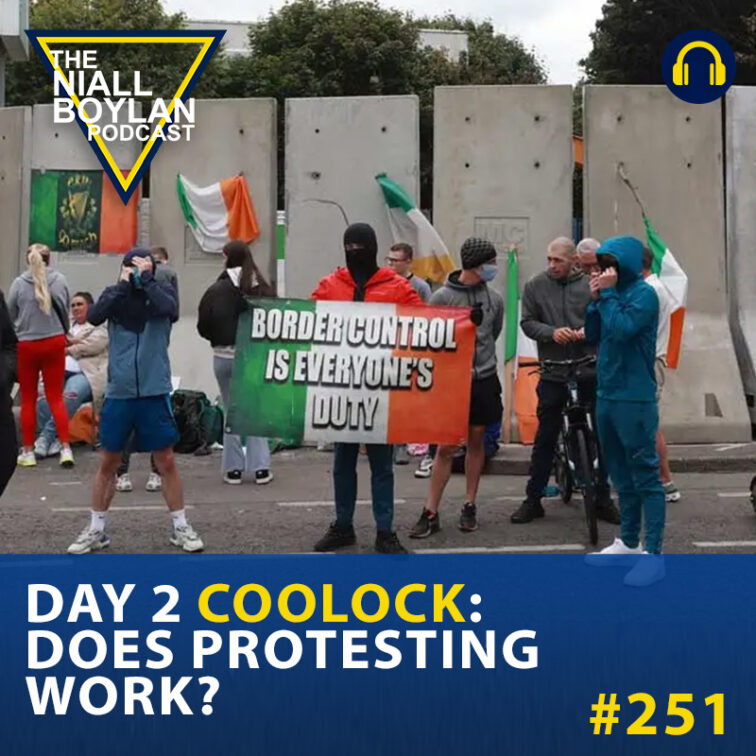
Day 2 Coolock: Does Protesting Work? Episode 251
-
play_circle_filled
Day 2 Coolock: Does Protesting Work? Episode 251
Niall Boylan
In this episode, Niall asks: Day 2 Coolock: Does protesting work? The question arises amidst the backdrop of recent unrest in Coolock, where Gardaí moved to facilitate the development of a site for hundreds of asylum seekers. The government is currently looking at more than 30 large buildings to accommodate migrants claiming asylum, moving away from reliance on hotels and emergency accommodations.
Senator Sharon Keogan recently criticized the government’s lack of public consultation, highlighting concerns over the development of sites like Thornton Hall, set to become a “tent city” for at least 1,000 asylum seekers. This decision has sparked fear and apprehension in local communities about increased competition for resources like GPs, A&E spaces, and social housing.
The number of asylum applications has surged by 93.9% in the first half of 2024, with the highest number of applications from Nigeria, Jordan, Pakistan, Somalia, and Bangladesh. This increase has intensified the debate on how best to accommodate these individuals while addressing community concerns.
Niall opens up the lines to callers to discuss whether protests are an effective means of influencing government policy and addressing local concerns.
Some callers believe that protests can work, but larger numbers are needed to make a real impact. They argue that significant public demonstrations send a strong message to the government, making it difficult to ignore the collective voice of the people. Effective protests require substantial turnout to show that the issue matters to many and to push the government to reconsider its decisions.
Other callers feel that protests are ineffective, often attracting individuals who may cause trouble, which detracts from the actual message. They believe that the government tends to dismiss protests as unruly behavior and that more constructive methods, such as petitions and lobbying, would be more effective in engaging with policymakers and bringing about change.
Niall wraps up by reflecting on the diverse opinions and the complexities of using protests as a tool for political and social change.








